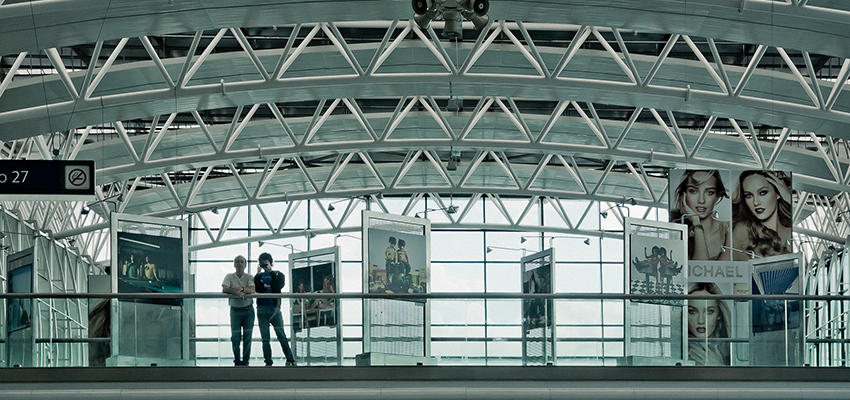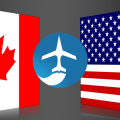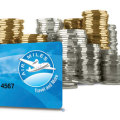If you’ve never heard the word “stopover” before, or you don’t know exactly what it means, you’re going to want to read this post because you can save a lot of money on your next awards flight.
A stopover is very different from a layover. Basically a stopover is any break in a flight itinerary that is longer than 24 hours and can last up to 12 months. A layover is a boring 1 – 23 hour wait in the airport, while a stopover can be an extra vacation, giving you time to explore and land a free destination in your flight itinerary.
In Canada, our rewards programs aren’t as generous as they are in America (particularly United Miles), but we can still get a pretty good deal by utilizing stopovers with Aeroplan.
Example of a Stopover:
Let’s say you want to go from Vancouver to London for a two-week holiday. If you’re booking this flight with your awards miles it will probably cost you around 60,000 points. But you’ve always wanted to go to Paris right? So you book a “stopover” in Paris for one week.
Now your flight goes from Vancouver to Paris, you stay in Paris for a week, then you fly from Paris to London for your two-week holiday and then back to Vancouver from London.
This entire flight itinerary will still only cost you 60,000 points. You’ve essentially landed two holiday destinations for the price of one. On top of this, you’ll avoid leaving from the UK back to North America which would incur a hefty UK departure tax (more on this below). The savings are really adding up now!
If you were to book this same flight with cash or credit, it would cost you a lot of extra money to include Paris in your itinerary… but not with a rewards flight, paid for using miles that you’ve accumulated by spending money on your credit card.
Airline Rules & Limitations
If you’re using Aeroplan miles the following rules apply:
- For travel within Canada or between Canada and the Continental USA (not including Hawaii/Puerto Rico), one stopover is permitted in addition to the point of turnaround. One open jaw is permitted in lieu of the one stopover.
- For travel between Canada/Cont. USA and Hawaii/Puerto Rico/Mexico/Central America/Caribbean:
- For rewards containing only Air Canada flights: Two stopovers are permitted in addition to the point of turnaround. One open jaw is permitted in lieu of one stopover.
- For rewards containing a minimum of one flight on a Star Alliance partner other than Air Canada: One stopover is permitted in addition to the point of turnaround. One open jaw is permitted in addition to the one stopover.
- For Intercontinental travel (travel between two continents): Two stopovers are permitted in addition to the point of turnaround. One open jaw is permitted in lieu of one of the two stopovers.
- For Intracontinental travel (travel within the same continent) except for travel within Canada/Continental USA, or between Canada/Cont. USA and Hawaii/Puerto Rico/Mexico/Central America/Caribbean: Stopovers are not permitted. One open jaw is permitted.
Note: The information above was taken directly from the Aeroplan website.
Does all of this sound confusing? Well it can be. Some airlines (Delta for example) don’t allow stopovers at all. Most airlines won’t allow any stopovers on domestic itineraries and there are complex routing rules to each airlines stopover policy. As this is simply an introduction to stopovers, I won’t get too deep into these stipulations now, but some great posts to read are here and here.
Booking Stopovers
Don’t let all of this mumbo jumbo confuse you. You can call the rewards agent to book your flight for you and ask them to tell you which airlines allow stopovers. If you tell them that you want to book a stopover in your itinerary, they’ll know exactly what you mean and they can help you further.
Alternatively, you can try to book the flights through your rewards program flight search, but some of them don’t allow you to search an itinerary including a stopover so you’ll have to call an agent anyways.
Fuel Surcharges
Beware of different fuel surcharges that can be applied to rewards tickets that include stopovers. Your little side trip to Paris won’t end up being free if you’re paying $300 in fuel surcharges, when you could probably book a return flight separately for less than that.
Aeroplan in particular, does add some fuel surcharges, but they also have pretty flexible routing rules so you can still find some good deals there (in the US, UnitedMiles never charge fuel surcharges).
Avoiding Other Fees
By utilizing the wonderful advantages of stopovers, you can also avoid other airline and airport fees to save yourself even more money. In the Vancouver – Paris – London – Vancouver example above, you would save nearly $200 in APD taxes (per ticket) by flying back to Vancouver from Paris, rather than the UK.
Note: APD is a departure tax that all passengers must pay when flying out of the UK. Many airports have these taxes, but the UK’s are particularly expensive.
APD and other departure taxes aren’t the only fees that you can avoid by taking stopovers. Sometimes, certain airlines have higher taxes, certain destinations have higher taxes, or you’ll be charged higher fuel surcharges depending on what airline rewards program you book with. For Americans who book with Alliance partners using United Miles, there are never any fuel surcharges. Sorry Canadians, we’re not so lucky!
The Ultimate Stopover Hack (1.5 Trips for the price of 1)
The great thing about stopovers is that you can technically call your home airport a stopover to another destination. Let’s say you live in Toronto, and you have a sister in London and a brother in Vancouver. You want to see your sister in London for Christmas and you want to spend Easter (the following year) in Vancouver with your brother.
You can book a flight to London for Christmas, then return back to Toronto, but in your awards itinerary you call Toronto a stopover on the way to Vancouver. Your stopover is for around 3 months (can technically be up to 1 year) until Easter and then you fly to Vancouver at Easter for free to complete the awards journey.
Now you only have to book a one way ticket from Vancouver back to Toronto. You’ve essentially landed yourself 1.5 trips for the price of one!
The only problem with this amazing hack is that you have to plan ahead because your essentially booking 1.5 holidays at once, and you’ll also have to make sure that your stopover is within the airlines routing rules, but other than that… your good to go!
Flight hackers and frequent flyers can save a ton of money by using stopovers and when you add open jaws to this hack, it becomes an even better money saver. If you don’t know what an open jaw is, keep reading this column because I’ll be explaining them in-depth soon.










